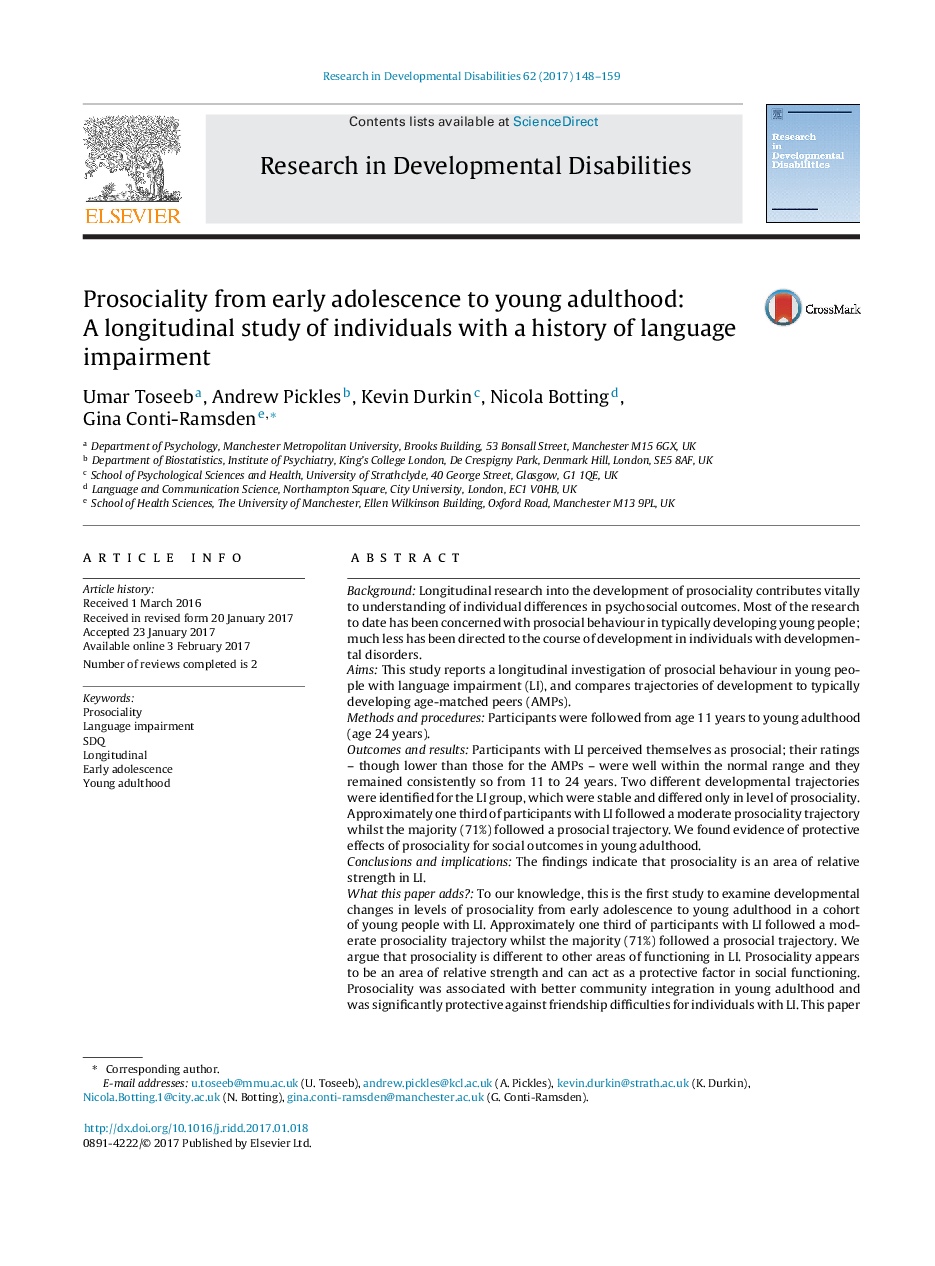ترجمه فارسی عنوان مقاله
مشروطیت از نوجوانی تا نوجوانی جوان: مطالعه طولی افراد با سابقه نقص زبان
عنوان انگلیسی
Prosociality from early adolescence to young adulthood: A longitudinal study of individuals with a history of language impairment
| کد مقاله | سال انتشار | تعداد صفحات مقاله انگلیسی |
|---|---|---|
| 115164 | 2017 | 12 صفحه PDF |
منبع

Publisher : Elsevier - Science Direct (الزویر - ساینس دایرکت)
Journal : Research in Developmental Disabilities, Volume 62, March 2017, Pages 148-159

